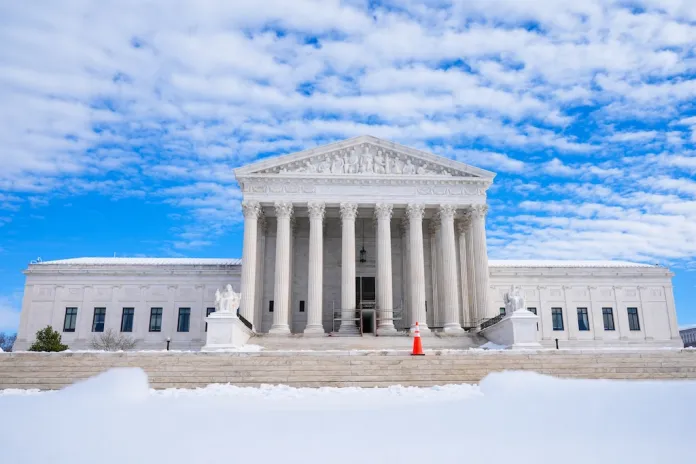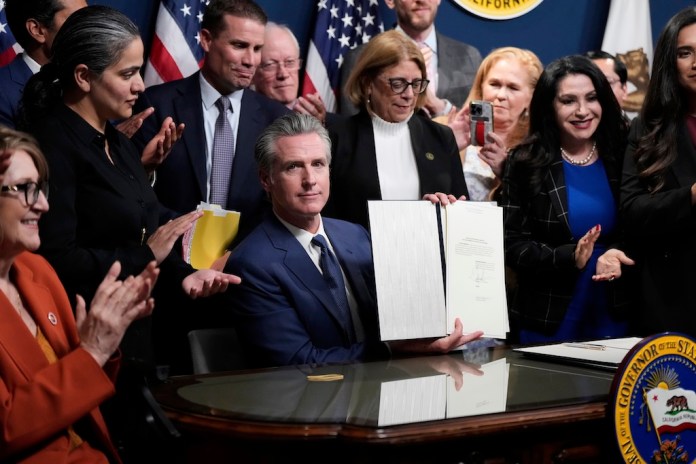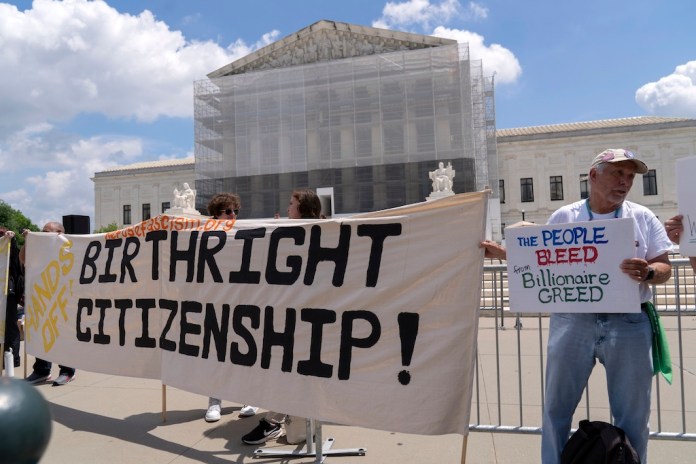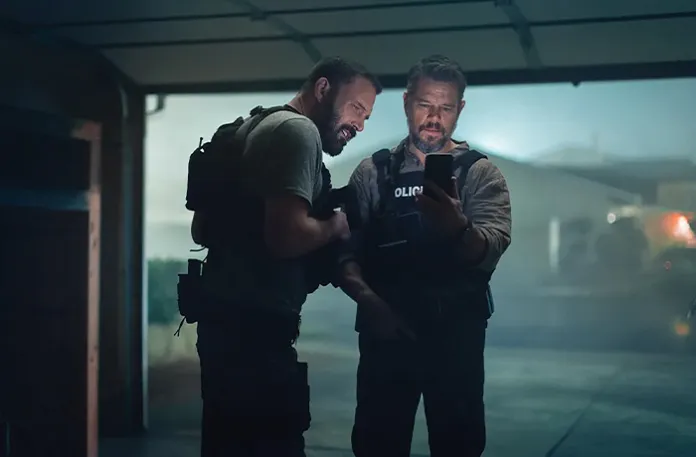Supreme Court signals narrow path forward in mistaken FBI raid case – Washington Examiner
The Supreme Court is considering a case involving an atlanta family whose home was mistakenly raided by FBI agents in 2017. The justices appear inclined to provide a narrow ruling that could allow the plaintiffs to seek damages without broadly expanding goverment liability. During oral arguments, there was skepticism about the government’s claim of immunity under the Federal Tort Claims Act for such mistakes. Justice Neil Gorsuch challenged the idea that agents shoudl not be held accountable for breaking down the wrong door, while other justices, including Sonia Sotomayor and Ketanji Brown Jackson, questioned the justification for the raid and the government’s stance. The case revolves around whether the federal government can be held liable for such incidents, with the ruling expected by the end of June.
Supreme Court signals narrow path forward in mistaken FBI raid case
The Supreme Court on Tuesday appeared likely to issue a narrow decision in the case of an Atlanta family whose home was mistakenly raided by FBI agents in 2017, a move that could offer plaintiffs a fresh chance at damages while sidestepping a sweeping ruling on government liability.
During arguments Tuesday, justices across the ideological spectrum seemed skeptical of the federal government’s claim that federal agents are shielded from lawsuits under the Federal Tort Claims Act when mistakes like the botched raid occur. But they also appeared reluctant to deliver a broad opinion that would significantly expand the government’s exposure to lawsuits.
The case centers on Trina Martin, whose front door was smashed down in 2017 by masked FBI agents before dawn in a search for a suspected gang member in Atlanta.
A flashbang grenade detonated in her bedroom, agents pointed guns at Martin and her boyfriend, and her 7-year-old son screamed from another room before the agents realized they had raided the wrong address.
“No policy says, ‘Don’t break down the door of the wrong house? Don’t traumatize its occupants?’” Justice Neil Gorsuch asked, indicating disbelief through his tone.
Pressing the government’s attorney, Frederick Liu, Gorsuch said that double-checking an address seemed like a minimal standard. “Is that asking too much?” he said.
Martin’s lawyer, Patrick Jaicomo with the Institute for Justice, argued the government’s position would gut protections Congress intended when it amended the FTCA in 1974 following public outrage over mistaken raids.
“Innocent victims must have a legal remedy available to them,” Jaicomo said. Comparing the case to everyday mishaps, he added, “If a pizza shop delivers to the wrong address, they have to issue a refund.”
The government contends the agents were exercising discretion in a high-stakes situation and should not be second-guessed in court. Liu suggested the raid involved “policy tradeoffs,” such as weighing whether a closer examination of the house could have jeopardized public safety.
But several justices remained somewhat unconvinced of the government’s position.
Justice Sonia Sotomayor questioned how “going into the wrong house” could ever be seen as a discretionary act protected under the law.
Justice Ketanji Brown Jackson indicated that while some law enforcement discretion must be protected, “perhaps not here,” signaling that this case might not qualify for immunity.
The court is now weighing whether to overturn part of the 11th U.S. Circuit Court of Appeals’s ruling that tossed out Martin’s lawsuit and send the case back for further litigation.
Despite some justices expressing empathy for the plaintiffs, the majority seem poised to act cautiously — perhaps by providing Martin and her family another shot at justice without reshaping the broader rules governing lawsuits against federal agents.
Following oral arguments, Constitutional Accountability Center senior appellate counsel Miriam Becker-Cohen said Martin v. United States “is about whether the federal government can be held liable for raiding the wrong house — and the answer is plainly yes.”
SUPREME COURT TO DECIDE IF FBI CAN BE SUED FOR RAIDING WRONG HOUSE
She said Congress “explicitly waived the federal government’s sovereign immunity” to ensure victims of wrong-house raids have a remedy, and noted the justices showed “warranted skepticism” toward the government’s defenses.
A decision is expected by the end of June.
" Conservative News Daily does not always share or support the views and opinions expressed here; they are just those of the writer."




